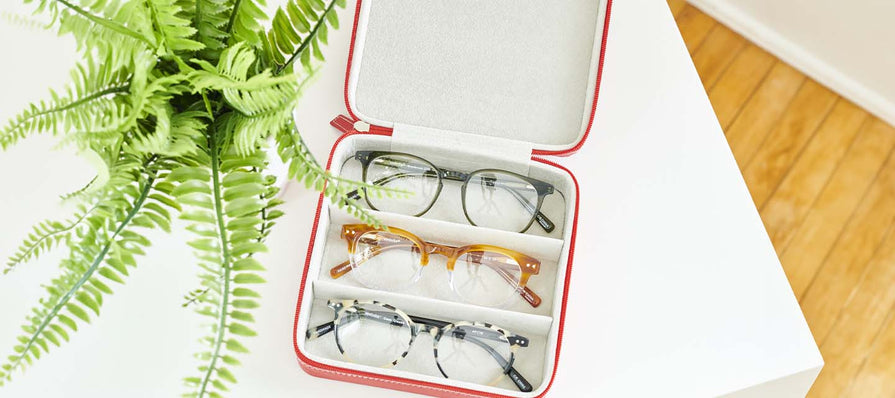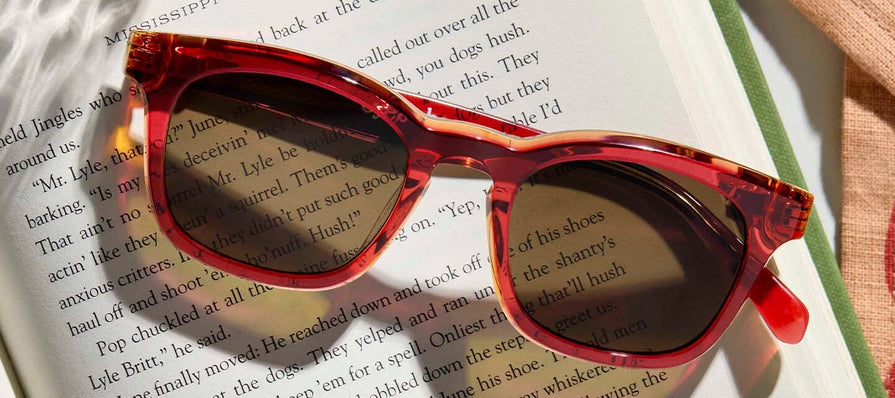So you’ve gone a good chunk of your life with 20/20 vision, happily oblivious to the intricacies of the optical world. Now, though, you’re realizing that tasks you once breezed through, like reading the restaurant menu or decluttering your email inbox, are becoming increasingly difficult. Welcome to the presbyopia club – it includes most people above the age of 40, so you’re in good company. Those who are entirely new to readers, or are still clinging to some misconceptions about them, should know it’s entirely normal to have some concerns – we fear what we do not understand, as they say. If you’re worried that reading glasses may be bad for you in any way, allow us to set your minds and eyes at ease.
So you’ve gone a good chunk of your life with 20/20 vision, happily oblivious to the intricacies of the optical world. Now, though, you’re realizing that tasks you once breezed through, like reading the restaurant menu or decluttering your email inbox, are becoming increasingly difficult. Welcome to the presbyopia club – it includes most people above the age of 40, so you’re in good company. Those who are entirely new to readers, or are still clinging to some misconceptions about them, should know it’s entirely normal to have some concerns – we fear what we do not understand, as they say. If you’re worried that reading glasses may be bad for you in any way, allow us to set your minds and eyes at ease.
Can reading glasses hurt your eyes?
Can reading glasses hurt your eyes?
There’s a commonly held myth that wearing your glasses too often can lead to eye strain, but according to Harvard Health, there is no clinical evidence that indicates that is the case. In fact, the opposite is true: not wearing your glasses when you need them is the quickest path to tired eyes. Your reading glasses are meant to work hard so you don’t have to, and they’re quite good at their job. Give your eyes a break, kick back, and let your readers do the rest. Unsure if you need reading glasses? Head to our guide to learn if you need reading glasses.
Is it okay to wear reading glasses all the time?
Is it okay to wear reading glasses all the time?
Look who’s already changing their tune! If you love your new readers so much you can’t bear to part with them, we get it, and we love to hear it. The good news: wearing reading glasses for extended periods of time won’t harm your eyes’ health in any way. The other news: unfortunately for those who already have separation anxiety whenever they take their readers off, wearing them for anything other than up-close activities will put your distance vision out of whack. That means that you should avoid wearing your full-lens reading glasses when, say, operating multi-ton vehicles. This one is a biggie – whether plane, train, automobile, or luxury yacht; just don’t do it. No matter how supportive and stylish your reading glasses are, they sadly cannot help you get out of traffic violations.
If you’d like to use your readers for any activities that require you to see beyond the end of your novel, perhaps consider progressive reading glasses. They feature your reader strength at the bottom and your distance prescription or no prescription up top, so you can keep them on all day long without fear of running into walls. If your “all the time” mostly involves up-close activities (and no judgment there – who doesn’t wish they could spend all day reading?), then feel free to wear your readers as much as your heart desires and then some. You won’t encounter any discomfort when using reading glasses for their intended purpose, no matter how long you wear them. Go ahead, breathe a sigh of relief.
Can reading glasses actually help with eye strain?
Can reading glasses actually help with eye strain?
It’s their bread and butter – besides helping you read, of course. Reading with compromised vision and no form of correction means that your eyes are working infinitely harder than they need to be, and remedying that will mean eliminating those burning eyes and 3 p.m. headaches that haunt you throughout the work day. The bottom line is that if your eye strain is resulting from pushing your eyeballs past their limit, your problem will certainly be solved by letting your reading glasses do the heavy lifting instead.
What about wearing reading glasses over prescription glasses?
What about wearing reading glasses over prescription glasses?
Is six eyes the new four eyes? That’s entirely up to you. If you’re unwilling to spare the precious few seconds it takes to remove your prescription glasses and put on reading glasses, or you simply enjoy receiving odd looks in public, wearing two pairs of glasses at once may be right for you. Doing this won’t cause any damage to your eyes, but potential drawbacks might include an uncomfortable fit or distorted vision. If it’s what your heart desires, then so be it, but we would encourage you to have a look at the vast assortment of eyewear innovations that preclude you needing to sport a look that’s more dopey than dashing.
Are cheaters bad for your eyes? Are reading glasses better for you than cheater glasses?
Are cheaters bad for your eyes? Are reading glasses better for you than cheater glasses?
Cards on the table: cheaters and reading glasses are different names for the same thing. However you prefer to refer to them – readers, cheaters, magnifiers, O Captain my Captain – your reading glasses will be an ace up your sleeve rather than a losing hand, and won’t damage your eyeballs in the least. Originating in the 1920s as slang for readers, the term “cheaters” is largely outdated now. After all, it comes from the tongue-in-cheek idea that those who use reading glasses are “cheating.” Unless you’re referring to the easy route towards an excellent outfit, we resent the implication. If you ask, those who never end up needing readers are the ones who are cheating by way of genetics. Almost everyone will need a helping hand from a pair of readers at some point. Presbyopia is nothing to be bashful about, folks!
Tiny print be damned.
Tiny print be damned.
Hopefully we’ve been able to assuage your optical concerns and convince you that the new readers you’ve acquired will not be a pain in the eyes. If not, you may be using the wrong prescription, and should consult your eye doctor posthaste. Or, head to our Reader Strength Test to double-check on your own.





